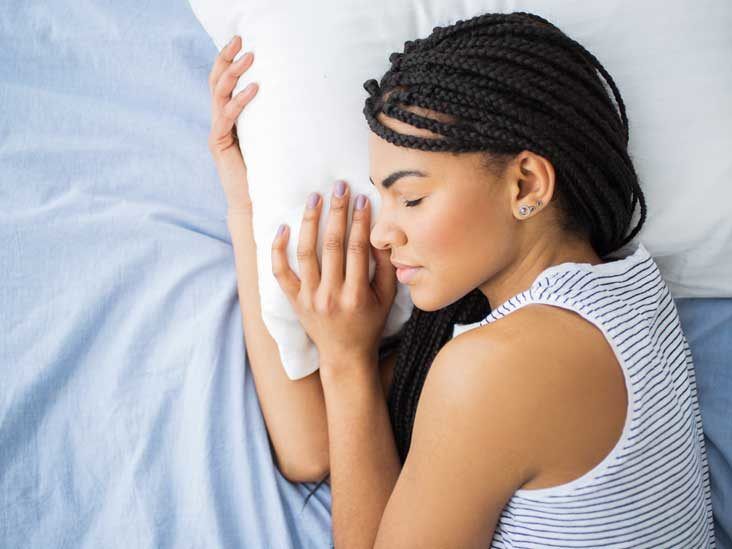Natural Sleep Remedies
 Sleep is essential for overall health and well-being, yet many people struggle to get an adequate amount of quality sleep each night. In today's fast-paced world, stress, anxiety, and busy schedules often disrupt our natural sleep patterns, leading to insomnia and other sleep-related issues.
Sleep is essential for overall health and well-being, yet many people struggle to get an adequate amount of quality sleep each night. In today's fast-paced world, stress, anxiety, and busy schedules often disrupt our natural sleep patterns, leading to insomnia and other sleep-related issues.
While prescription medications may offer temporary relief, they often come with side effects and dependency risks. Fortunately, there are several natural sleep remedies that can promote restful sleep without the need for pharmaceutical interventions.
In this comprehensive guide, we explore various holistic approaches, lifestyle changes, and herbal remedies to help you achieve deeper and more restorative sleep.
Establish a Consistent Sleep Routine
One of the most effective ways to improve sleep quality is to establish a consistent sleep routine. Going to bed and waking up at the same time every day helps regulate your body's internal clock, known as the circadian rhythm.
Create a relaxing bedtime routine that signals to your body that it's time to wind down. This may include activities such as reading, taking a warm bath, practicing relaxation techniques like deep breathing or meditation, or listening to calming music.
Create a Comfortable Sleep Environment
 Your sleep environment plays a significant role in your ability to fall asleep and stay asleep throughout the night.
Your sleep environment plays a significant role in your ability to fall asleep and stay asleep throughout the night.
Make your bedroom a comfortable and tranquil space conducive to sleep by:
Keeping the room dark, quiet, and cool: Use blackout curtains or an eye mask to block out light, and consider using earplugs or a white noise machine to mask disruptive sounds. Set the thermostat to a comfortable temperature, typically between 60-67 degrees Fahrenheit (15-19 degrees Celsius).
Investing in a supportive mattress and pillows: Choose a mattress and pillows that provide adequate support for your body and promote proper alignment. Experiment with different mattress firmness levels and pillow types to find what works best for you.
Limiting electronic devices: Minimize exposure to screens (phones, tablets, computers, TVs) before bedtime, as the blue light emitted by these devices can interfere with melatonin production and disrupt sleep.
Practice Relaxation Techniques
Relaxation techniques can help calm the mind and body, making it easier to fall asleep and stay asleep. Incorporate the following relaxation practices into your bedtime routine:
Deep breathing exercises: Practice diaphragmatic breathing or other breathing techniques to promote relaxation and reduce stress and anxiety.
Progressive muscle relaxation: Tense and relax each muscle group in your body, starting from your toes and working your way up to your head, to release tension and promote relaxation.
Mindfulness meditation: Practice mindfulness meditation to cultivate present-moment awareness and reduce racing thoughts and mental chatter that can interfere with sleep.
Limit Stimulants and Caffeine
Stimulants like caffeine can disrupt sleep patterns and make it difficult to fall asleep. Limit your consumption of caffeine-containing beverages like coffee, tea, and soda, especially in the afternoon and evening hours.
Be mindful of hidden sources of caffeine in medications, chocolate, and energy drinks, and opt for caffeine-free alternatives when possible.
Avoid Heavy Meals and Alcohol Before Bed
Eating heavy or spicy meals, as well as consuming alcohol, close to bedtime can disrupt sleep by causing indigestion, heartburn, and nighttime awakenings. Instead, opt for light, easily digestible snacks if you're hungry before bed, and avoid alcohol within a few hours of bedtime.
Try Herbal Remedies and Supplements
Several herbal remedies and supplements have been traditionally used to promote relaxation and improve sleep quality. Consider incorporating the following into your bedtime routine: Valerian root: Valerian root is a popular herbal remedy for insomnia and sleep disturbances. It works by increasing levels of gamma-aminobutyric acid (GABA), a neurotransmitter that promotes relaxation and reduces anxiety.
Valerian root: Valerian root is a popular herbal remedy for insomnia and sleep disturbances. It works by increasing levels of gamma-aminobutyric acid (GABA), a neurotransmitter that promotes relaxation and reduces anxiety.
Chamomile: Chamomile tea is known for its calming properties and is often used as a natural sleep aid. Enjoy a cup of chamomile tea before bedtime to relax and unwind.
Lavender: Lavender essential oil has been shown to promote relaxation and improve sleep quality. Diffuse lavender oil in your bedroom, add a few drops to your pillow, or take a relaxing bath with lavender-infused bath salts before bedtime.
Magnesium: Magnesium is an essential mineral that plays a role in muscle relaxation and the regulation of neurotransmitters involved in sleep. Consider taking a magnesium supplement or incorporating magnesium-rich foods like leafy greens, nuts, seeds, and whole grains into your diet.
Consider Cognitive Behavioral Therapy for Insomnia (CBT-I)
Cognitive Behavioral Therapy for Insomnia (CBT-I) is a highly effective, evidence-based treatment for chronic insomnia. CBT-I focuses on changing unhealthy sleep habits and addressing underlying factors contributing to sleep disturbances, such as stress, anxiety, and negative thought patterns.
A trained therapist can teach you practical strategies and techniques to improve sleep quality and overcome insomnia without the use of medication.
Conclusion
Achieving restful and rejuvenating sleep is essential for overall health and well-being. By incorporating these natural sleep remedies into your daily routine and making healthy lifestyle choices, you can improve sleep quality, enhance daytime functioning, and experience the numerous benefits of a good night's sleep.
Remember to be patient and consistent in your efforts, as it may take time to see significant improvements in your sleep patterns. If sleep problems persist or worsen, consult with a healthcare professional to rule out underlying medical conditions and explore additional treatment options tailored to your needs.












































































